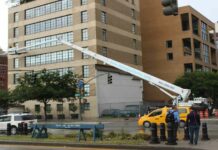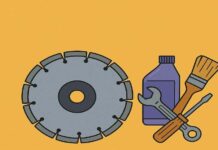Even before the COVID-19 outbreak, the United States had severe housing problems. For decades, stagnating wages and a scarcity of housing supply have pushed home ownership out of reach for millions of families.
With the coronavirus reducing hours, income, and employment, even more individuals are experiencing housing instability at a time when being able to live comfortably and affordably is essential to our collective health and safety.
As stated in this article, immediately after proceeding the office, the Biden-Harris Administration prolonged the mortgage forbearance enrollment period for homeowners with government-backed mortgages and the foreclosure moratorium.
How COVID-19 Affects Homeowners and Renters
COVID-19’s economic consequences have been widespread. Due to the start of the epidemic, 22 million individuals nationwide lost their jobs in a couple of weeks.
Many observers were concerned that many of these households would fall behind on rent or mortgage payments, resulting in evictions and foreclosures.
Renters, on the other hand, have suffered excessively. Even before the pandemic, renter households were threatened by high housing prices, particularly the 1.5 million low-income families who spent at least half of their income on housing.
Job loss caused by the epidemic adds to these families’ financial woes.
Renter households have seen more excellent job loss rates during the pandemic due to the mix of the industries and occupations most affected by public health restrictions and falling economic activity.
It is because job losses have primarily impacted lower-wage people, who are far more likely to rent than higher-wage workers.
Renters and Rental Debt
The exact amount of unpaid rent due to the COVID-19 pandemic is unknown. There have been many speculations about two concerns.
The first concern is how the epidemic has affected renters, and the second is how much rental debt has developed in California due to COVID-19.
Although the precise quantity of unpaid rent in the state is unknown, academics have sought to quantify it to provide light on how the epidemic has affected renter households and hence assist in influencing any governmental response.
According to an initial national analysis conducted by the Federal Reserve Bank of Philadelphia, California renters owe $1.7 billion in unpaid rent.
Researchers at the Federal Reserve Bank of Philadelphia presented a nationwide examination of COVID-19 rental debt in October 2020.
The national model follows households throughout the epidemic, adjusting monthly family income downward for job losses and upward for federal stimulus and unemployment insurance payouts.
Some homes are expected to have inadequate income to pay monthly rent and other non-housing expenditures based on how their payments vary throughout the epidemic. Rent debt grows for these households each month.
Homeowners
Compared to renters, homeowners have higher incomes and more savings and other assets, putting them in a better position to weather financial crises.
Homeowners fared remarkably well throughout the epidemic compared to the fears many observers had during the initial months of the outbreak, owing to their typically more substantial financial situation and the government policy response to the virus.
Mortgage delinquencies were relatively low during 2020, partly because, as previously noted, employment losses in jobs generally held by homeowners have been less severe, and federal stimulus programs have stabilized household budgets.
Furthermore, homeowners’ delinquencies have stayed low due to a new government relief program that enabled many homeowners to delay their mortgage payments for up to 12 months.
While failures are anticipated to rise somewhat in the spring and summer of 2021 as forbearance periods expire, we estimate that many borrowers will be able to continue making mortgage payments after their forbearance period expires.
Rudiments of Mortgage Relief Assistance
The coronavirus lowers hours, income, and employment. It impacts an increasing number of people suffering housing insecurity at a time when being able to live comfortably and inexpensively is critical to our collective health and safety.
Biden’s home owners relief program was established to prevent the state’s housing problem from escalating as a result of financial troubles caused by COVID-19
Foundation of This Program
On June 24, the Administration lengthened the foreclosure moratorium for one more month, until July 31, 2021, and the Mortgage forbearance extension 2022 until September 30, 2021, with up to three months of further forbearance available to qualified borrowers.
These steps were done by three government departments that support mortgages: the Departments of Housing and Urban Development (HUD), Veterans Affairs (VA), and Agriculture (USDA). The Federal Housing Finance Agency (FHFA) extended equal protection for Fannie Mae and Freddie Mac-backed mortgages.
What Mortgage Relief Assistance Entails?
The new Biden proposal provides further coronavirus assistance to an individual who qualifies for Mortgage Stimulus Program.
The Coronavirus, Aid, Relief, and Economic Security (CARES) Act required lenders holding federally backed single-family mortgages to delay borrowers’ payments for up to 360 days if they faced financial difficulty due to the coronavirus pandemic.
A similar but shorter (90-day) forbearance period was available for owners of multifamily apartments with federally backed mortgages.
Following the 2020 financial crisis, further legislation, such as the Consolidated Appropriations Act, the American Rescue Plan Act of 2021, and presidential executive initiatives, resulted in more excellent mortgage relief.
Why is it Essential for Homeowners and Renters?
It helped ensure that no American family lost their houses due to the pandemic. These programs avoided foreclosures and allowed homeowners with government-backed loans to put their mortgage payments on hold for up to eighteen months. Almost 7.2 million American families used forbearance choices.
Who qualifies for Mortgage Stimulus Program? Eligible families can utilize these funds to cover past due rent, utility bills, and future rental payments.
While federal rules set the framework for how these monies may be used, state and local governments must make significant decisions regarding how they will utilize this money to help tenants who have accrued rental debt due to the epidemic.
Who Qualifies for the Mortgage Stimulus Program?
Biden mortgage financial assistance pertains to the federal government and government-sponsored enterprises (GSE)-backed loans. It includes having your property insured by the Federal Housing Administration (FHA).
Further, the National Housing Act, Section 255, offers insurance for home equity conversion mortgages handled by the U.S. Housing and Community Development (HUD).
Section 184 or 184A of the Homes and Community Development Act of 1992, focuses on American Indian families and Hawaiian housing.
The said assistance program also covers loans that are guaranteed or guaranteed by the United States Veterans Affairs Department (VA) or manufactured by the United States Agriculture Department (USDA).
It also includes the Federal Home Loan Mortgage Corporation (Freddie Mac) or the Federal National Mortgage Association purchased or securitized (Fannie Mae)
Lastly, residential owners, as well as landlords and other business owners, may hold federally qualifying mortgages. Residential mortgage borrowers face different requirements than multifamily property owners.
Determine Whether Your Loan Is Federally Guaranteed
Here are some measures you can take to determine whether your loan is federally guaranteed, making you eligible for the assistance mentioned above:
Contact Your Mortgage Servicer by Phone or in Writing
Your servicer is expected to notify you who owns your mortgage and give you the owner’s name, address, and phone number.
Look it Up Online
Find out if your mortgage is owned by Fannie Mae or Freddie Mac using loan lookup tools supplied by those two government-backed companies.
Non-Government-Backed Mortgage
According to federal authorities, most non-government-backed lenders and loan servicers will follow measures comparable to those established by the CARES Act and subsequent legislation.
To find out, call your loan servicer, inquire about any initiatives to assist homes affected by the coronavirus epidemic, and follow any instructions you provide.
Although the CARES Act does not compel private lenders to provide mortgage help if you and your lender reach a loan modification arrangement, the statute prohibiting credit bureaus from disclosing decreased or delayed payments applies to you.
How Can I Apply For Mortgage Stimulus Program?
After knowing who qualifies for Mortgage Stimulus Program, the application process proceeds. The application procedures may differ depending on the region. You will be required to prove your income and may be required to produce further proof.
You must affirm that you encountered financial difficulty after January 21, 2020, and specify the nature of that hardship, such as job loss, income reduction, or higher expenditures owing to healthcare or the requirement to care for a family member.
Look for the appropriate state, district, or territory on the map to discover more about your program. You will be able to locate programs in your location and register instantly or sign up to be advised when your program becomes available.
Housing counselors can also assist you in developing a customized plan of action and working with your mortgage company at no cost. To know more regarding this context visit https://homesbyardor.com/bidens-mortgage-stimulus/.
How will I Receive the Assistance If I am Authorized?
If you are accepted for the Mortgage Relief Program 2022, the money will often be given straight to your mortgage servicer, utility company, or contractor performing repairs if they participate in the program.
Your mortgage servicer is the business to whom you mail your mortgage statements and make payments.
If funds are being utilized to assist with mortgage payments, contact your servicer to clarify the procedure, confirm that they participate in the program, and inform them that they will most likely be getting paid.
The Mortgage Stimulus Program should be utilized with any other payment modification options offered by your mortgage servicer.
Bottomline
Coronavirus disease 2019 (COVID19) has affected renters and homeowners. Fortunately, the state and federal measures have helped both groups balance family finances.
The exceptional efforts taken by the state and federal governments to improve earnings and give rental and mortgage relief have assisted an individual who qualifies for Mortgage Stimulus Program that might otherwise face eviction or foreclosure in avoiding these disruptive occurrences.
Contact a housing counseling agency in your region for assistance in communicating with your mortgage servicer or understanding your alternatives, such as Homes by Ardor.




























